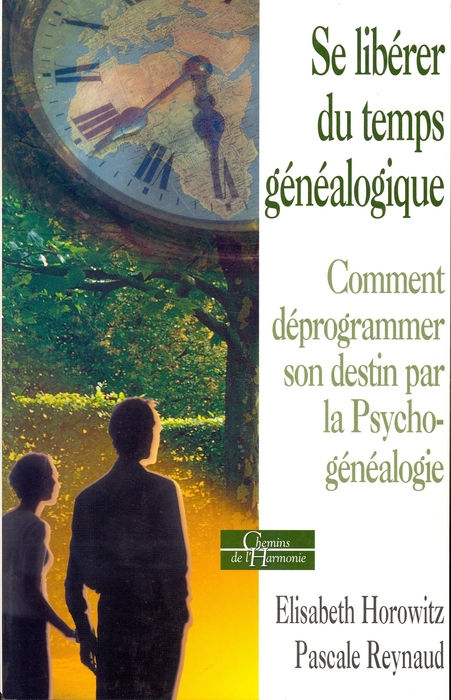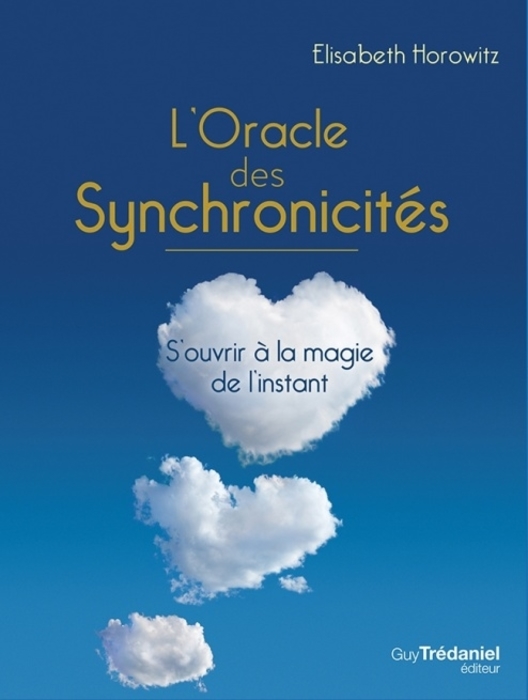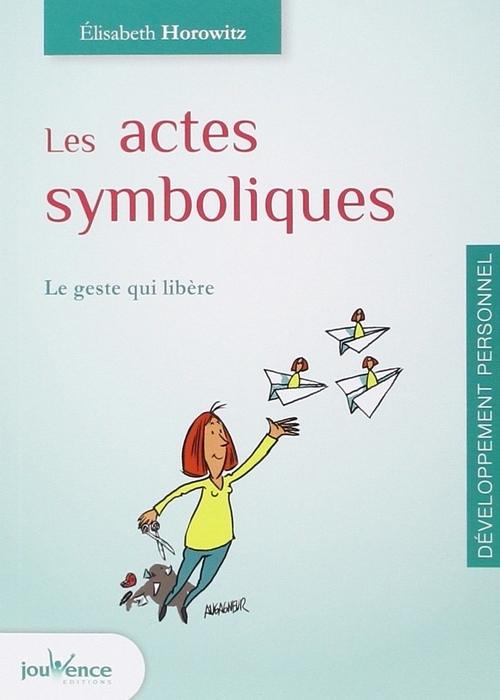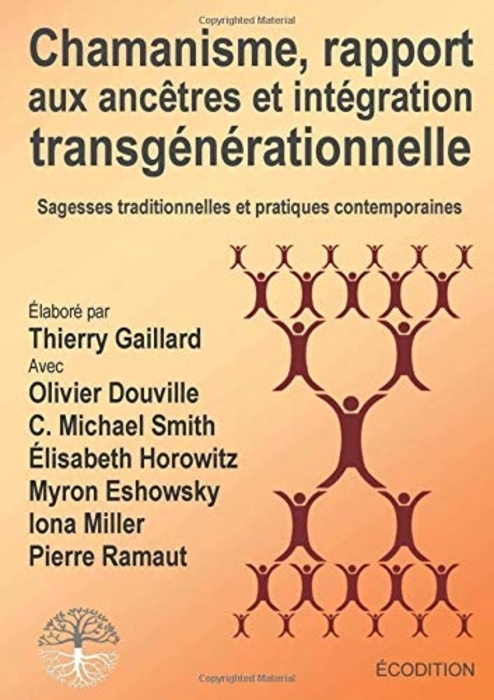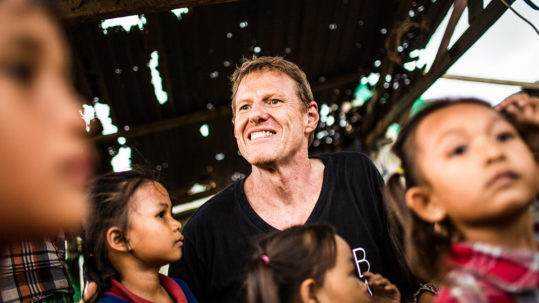
12 Nov Elisabeth Horowitz
Photo: free of rights.
Elisabeth Horowitz
We all inherit physical characteristics from our parents or our grandparents; but what would happen if this inheritance was not limited to the color of our eyes, our ability to play an instrument, or our great looks? Elisabeth Horowitz is a therapist who specializes in psychogenealogy—the analysis of the family tree. She is the author of many books and the founder of the French Association of Psychogenealogy. Her pioneering research on the family tree began in the 1980s, at a time when documentation on the topic was nonexistent. What if our entire life was mimicking the trajectory, good or bad, of our ancestors? Why is naming a child after a family member a bad idea? How can we become aware of hidden memories that lie within? These are some of the many questions to which Elisabeth Horowitz gives us answers and the possibility to break free from the family tree and take full ownership of a life lived in complete awareness.
By Victoria Adelaide | Nov 12. 2018
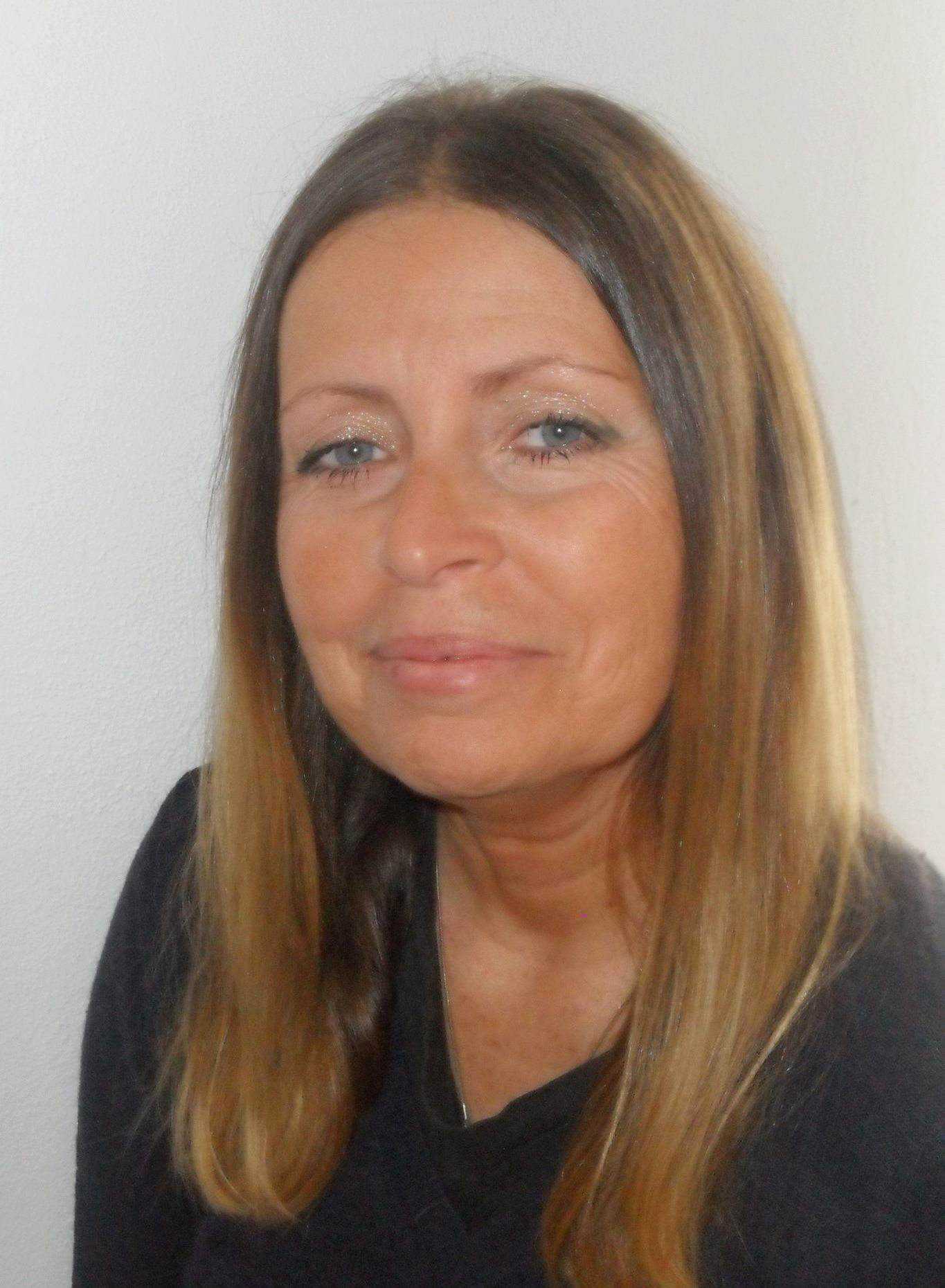
Photo courtesy of Elisabeth Horowitz.
Victoria Adelaide: Ms. Horowitz, can you tell us what psychogenealogy is?
Elisabeth Horowitz: Psychogenealogy is a new discipline that focuses on a family’s history over two or three generations.
VA: Your interest in psychogenealogy began 30 years ago. What triggered it?
EH: I became interested in psychology in my university studies in the early ’80s. I came across an article about transgenerational inheritance, suggesting that the problems we encounter could be inherited from the trajectories of our parents, grandparents, and ancestors from both the maternal and the paternal side. That article truly ignited my desire to research more on the topic, as there was almost no documentation available at the time. I published my first book in 1995, and I would say that psychogenealogy started to emerge publicly about 20 years ago.
VA: In several of your books, you draw a fine line between the moment of our conception and money. Could you elaborate a bit further?
EH: That’s right. In several of my books, I explained that our life starts at the moment of our conception. Our conception does not happen by accident; it’s determined by the trajectories of our parents and our grandparents. Therefore, it raises questions and we may ask ourselves, “What were the circumstances of my conception?” “Did I arrive after some brothers and sisters?” “Was I the first conceived?” “Was I conceived in replacement of a prematurely deceased child or as a result of a miscarriage?” “At which exact moment did I arrive in the family?” “What was the reason for my conception?” “How old were my parents when I was conceived?” We have to understand that the destiny of each brother and sister is entirely original because they were each conceived at a specific time in the family. The parents’ situation at the moment of conception automatically generates inheritance. If our parents were in a phase of expansion and were successful when they conceived us, it triggered a different path than being conceived by parents who were in a financial crisis and for whom having a child was seen as a solution to solve some of their problems. Hence, it’s essential to look at the circumstances of each conception.
VA: You say that naming a child after a family member is a bad idea. Why?
EH: Naming a child after a family member comes from the desire to link the child to the family group. The moment we name a child after a family member, two situations occur. First, when we name a child after a deceased person, we encourage the child to perpetuate the life of that person. Sometimes, the child can even reproduce some aspects of that person’s life. By naming a child after a family member, we imprint an obligation of replacement and a commitment to get in a sort of mimetism because the underlying duty is to perpetuate the life of the person who originally carried the name. That’s when it becomes dangerous, because what will that child reproduce? Secrets? Failed trajectories? Second, when a child inherits the name of a person who is still alive, it will impact them because the child will be in competition with that person. In all likelihood, we can think of the family tree as wanting to separate from the person using the name and wanting to create a new vital dynamic by giving it to the child.
VA: What about someone who was adopted, born under X with no possibility to trace their ancestry?
EH: Well, there are different situations. You have the case where a person doesn’t know they have been adopted. I have experienced numerous situations in which people have discovered by accident, in a conversation or when they needed to renew some papers, that they were adopted and nobody ever told them the truth. Also, without being adopted, you can have a father who is not the one presenting himself as your father. Suppose a woman had an affair while married and she told everyone that her husband fathered her child. It is, in some ways, a form of adoption that can never be discovered if no DNA tests are done, because the child carries the family name, is legally registered, and nobody knows that the biological father was the mother’s lover. Sometimes, the woman may not know because she may have been intimate with both her husband and her lover in the same week, so she doesn’t know who the biological father is. Now when the child has been told he was adopted, you have two situations. First, the adoptive parents may be open to speaking of the biological family. Second, the adoptive family may refuse to reveal any information, even if they have some information or documentation regarding the biological family of the child. By doing that, they can maintain their power, avoid being questioned, and don’t put their status as parents in jeopardy. That’s a real tragedy when it happens because they prevent the child from tracing their true origins.
VA: There are a lot of different views on adoption. What’s yours?
EH: Well, I’m very wary of adoption, because I can see its effects on adopted children—all the time. They are often traumatized or violent. Most adopted children are unhappy. Sooner or later, they have this need to find out where they come from, which is normal, especially if they are in an adoptive family from a different ethnic background. It can also be a different social class. Some biological families often have less money than adoptive families. That’s why some of them abandon their children as a result of socio-economic difficulties. Adoptive families are often wealthier and can ensure better lives for the children. My observation is that most adoptive families have problems with children they have adopted and the children with their foster families. Children may reject their adoptive families at some point because they have no information about their origins. Adopting or taking care of a child who was abandoned or who cannot be taken care of is one thing, but I think that in the adoption process, the mistake is to include a child in a different genealogy simply because it goes against the natural order. What needs to be understood is that the core principle of adoption, which is to integrate a child into a family in which he is not blood-related, is, in my opinion, a severe prejudice—and not only for the biological family who abandoned the child and will undoubtedly have to live with the very destructive consequences but also when the adoptive family includes a child who is not theirs, who was not conceived by them. Here, I’m not talking about welcoming a child or the love the adoptive family may have for the child. I am referring to giving a name to a child who is not blood-related. It’s a prejudice to the family tree, and it will also impact not only the adopted child but the brothers and sisters who may be there, because they may wonder why a child who has no shared history with them, who has not been conceived by their parents, inherited their name in just a few weeks, and is included in their family tree. Obviously, that will have an impact on all systems in the biological and adoptive system and, of course, for the child because, in some cases, they will be unable to know their biological family, where they come from, their heritage over the three or four generations, their history, the structure of their original family, what’s happened to their family tree, etc. It truly is a loss of essential information. Then the child includes themselves artificially in an adoptive family, to whom, at first glance, they are not related. In some cases, we discover that the birthday of the adopted child matches a crucial date in the adoptive family. There can be secrets, too. For example, let’s go back three generations in a European Caucasian family. Imagine that the grandfather went to war in Indochina. He was married before he left for the war and while at war he met a local woman and fathered her child. Note that he may not have been aware that he fathered a child. So, there’s a whole story linked to Asia. Then, two generations later, among the grandchildren, one of the couples is sterile and, without thinking or taking into account the story of their grandfather, they decide to go to Asia to adopt a child. So, is there a return of suppressed emotions? Is there a return of the family history two generations later with this adoption? Yes, it’s possible. Therefore, there is a link somewhere. Adoption is a very sensitive topic that must be dealt with on a case-by-case basis. We cannot generalize because all adoption cases are different.
Books by Elisabeth Horowitz.
VA: Can we free ourselves from the influence of the family tree without losing our identity?
EH: What is very important in the family system is age. We realized there is what we call the birthday syndrome, which means that when we reach an age that was critical for our parents or our grandparents, some adverse effects can occur. For example, my mother died at 60 and, at 60, I lost my job. That can be a birthday syndrome. The first markers are the age of our parents when they got married, their age when they conceived us, their age when they started to work, their age when they divorced, their age during a traumatic event, but also during a positive event, and then their age when they died. All of those are age markers. When we have a specific problem, the first question we should ask ourselves is, “Have I reached an age that was critical to my parents or my grandparents or both?” The connection is natural because if that’s the case we know that we have arrived at a genealogical crossroads, so there is a family influence. If we understand that it’s a family influence, we can get rid of it, because we realize that we are inside that family system. However, if we are unaware of it, we can’t identify the source of the problem. It’s easier to get rid of those issues when we have identified the birthday syndrome.
VA: Very true. We often observed that, let’s say, in a middle-class family, when one succeeds against all expectations, the feedback from other family members may be jealousy, envy, bitterness, and resentment when, frankly, everybody should be happy for the success of their brother, sister, or uncle.
EH: That’s the double bind. Vincent de Gaulejac, a French sociologist, wrote a book called, La Névrose de Classe (The Class Neurosis), which explains this double bind, which means that within poor or middle-class families, the descendants are encouraged to do better. At the same time, they are asked to remain loyal to the original family. Hence, they find themselves in a double bind with a message and its opposite that leads them into neurosis, as they are told, “Do better than we did, but do not be more successful than us.” That’s why some people may fail at a school exam or when they apply for a job that could promote them socially.
VA: Yes…it’s really about love, isn’t it?
EH: What’s important to understand is that as long as parents love and do not make any differences between their children, then they set their children for success. Those children may have a chance to follow their true aspirations in life, not based on money but on what they truly love. Money is not a factor of success. We can see wealthy families preventing their children from doing what they want because it doesn’t fit into socio-professional categories, such as lawyers, doctors, engineers, etc. The only factor of success is the unconditional love that the parents and grandparents transmit to their children.
VA: You said trauma can reoccur years later. Can you tell us a bit about that?
EH: Well, when there’s trauma, there’s an imprint. There’s not only a geographical imprint, the place where it happened but there’s also a human imprint, the people involved, the scenery, the clothes we wore that day, and so on. If we come in contact with one or more of those elements, there’s a risk of depression, because when there’s trauma, there’s a system of protections that unleashes to avoid a psychological collapse—mechanisms that allow us to delay the symptom. When there is abuse, especially verbal abuse, we often think that we can cope with it and sometimes we endure if for a long time without realizing how it weakens us and the astonishing amount of energy we spend to survive. We don’t understand the depth of the trauma and the depression that occurs as a result. All of that can be delayed. However, it can come back years later if we see these people again or if we found ourselves in a similar setting with people who look like them, who have the same name, or who were born on the same day or in the same city. The psyche can trigger an alert when similar circumstances reoccur.
VA: It’s like pressing a button.
EH: Absolutely. It’s likely to trigger what was repressed and what was hidden when the trauma occurred. Imagine you were in a car accident and, on the day it happened, you were dressed in a certain way and you drove a particular type of car. You will never buy the same car again and you will never wear the same clothes. We tend to stay away from elements that are the root cause of our suffering. The brain associates an event with circumstances—whether geographic or it can also be a date. Some adverse events that are latent may emerge one year or ten years later.
VA: Let’s talk about brief therapy. How can we solve a problem without looking at the root cause of that problem?
EH: Well, we have to understand it in its historical context. Psychoanalysis was born around 1900. It was new, and Freud initiated the cure, the couch, being able to talk, and so on. It was significant for many people as they could express their feelings without being judged. I do not question the psychoanalytic cure, which I think has tremendous benefits and all the work of tracing back our story, but there was a turning point in the ’60s, which occurred simultaneously in the United States and Italy. A new trend emerged in Palo Alto, California, where some psychologists and cyberneticists started to think that Freud’s psychoanalysis was tremendous, but most Americans could not afford to pay for therapy that would last for years. They wanted immediate results so they decided to focus on how to solve the problem rather than focusing on the root cause of the problem. Thus, the school of Palo Alto was born, a school that was oriented towards a solution. Among those founders, we had great psychologists and cyberneticists such as Milton H. Erickson, Gregory Bateson, and Paul Watzlawick. At the same time, in Milan, Mara Selvini Palazzoli and a few other therapists founded a center of Solution-focused (brief) therapy (SFBT). Of course, as therapists, they knew there was a root cause and that symptoms did not occur just by chance, but they were not interested in the root cause. For example, you have a young adult who comes in for a consultation because he pees the bed. Generally, it happens when he fears a strict parent, an authoritarian father, or a possessive mother. Anxiety builds up and makes him pee the bed while asleep. So, we will tell that young man to go to bed and to urinate right away. We will not wait until he falls asleep for him to pee the bed. We will provoke a symptom that usually happens unconsciously during the night. By urinating consciously and immediately as soon as he goes to bed, the patient stops being anxious about the trait. By prescribing the symptom, we end the symptom. Another example is the case of a person who is obsessive, who likes to clean their house for hours every day. We will amplify the symptom and if they clean for three hours per day, we will prescribe that they clean for six hours per day, up to the point of saturating the symptom. You may also have the case of a person who has obsessive thoughts. Milton Erickson used to say that we all have, at some level, obsessive thoughts and he advised having those thoughts on the same chair every day, and only between 5 and 6 pm. Accordingly, we do not eliminate the symptom but we play with it—either we amplify it, reframe it, or we cause it intentionally. Brief therapies are a revolution inside treatment and in the way we treat symptoms.





